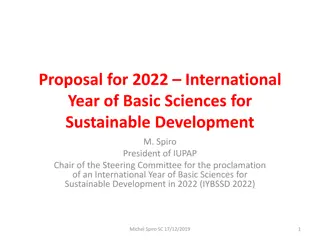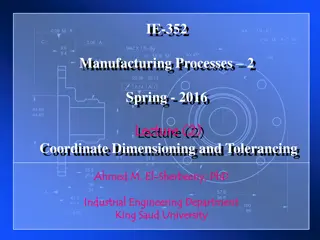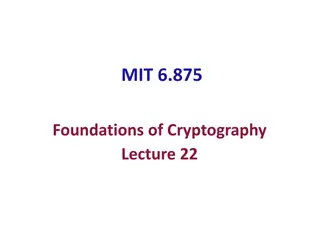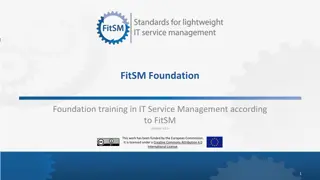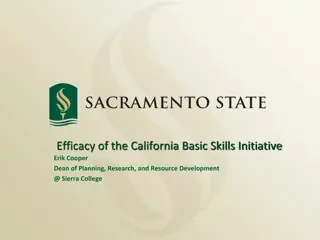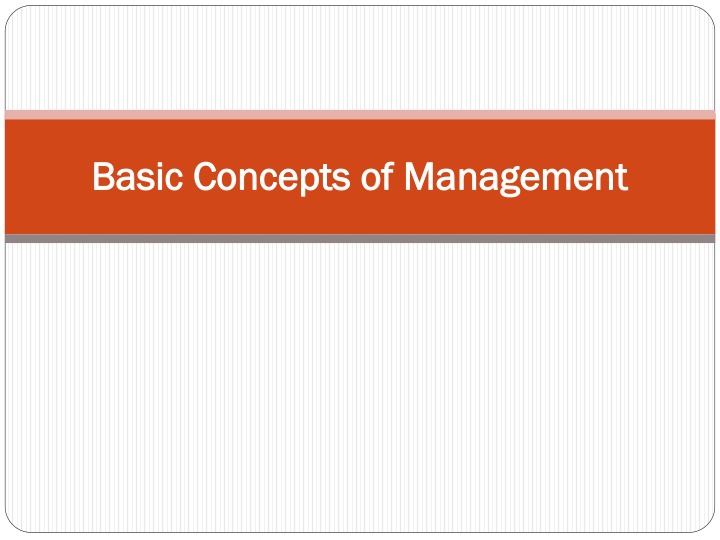
Understanding the Fundamental Concepts of Management
Explore the basic concepts of management, including the definition, functions such as planning, organizing, staffing, directing, and controlling, and the importance of effective management in achieving organizational goals. Learn how management involves getting people together to work towards common objectives efficiently and effectively.
Download Presentation

Please find below an Image/Link to download the presentation.
The content on the website is provided AS IS for your information and personal use only. It may not be sold, licensed, or shared on other websites without obtaining consent from the author. If you encounter any issues during the download, it is possible that the publisher has removed the file from their server.
You are allowed to download the files provided on this website for personal or commercial use, subject to the condition that they are used lawfully. All files are the property of their respective owners.
The content on the website is provided AS IS for your information and personal use only. It may not be sold, licensed, or shared on other websites without obtaining consent from the author.
E N D
Presentation Transcript
Basic Concepts of Management Basic Concepts of Management
Management Management - - Definition Definition Management is the act of getting people together to accomplish desired goals and objectives using available resources efficiently and effectively. Management comprises planning, organizing, staffing, leading, coordinating and controlling an organization (a group of one or more people or entities) or effort for the purpose of accomplishing a goal. Resourcing encompasses the development and manipulation of human resources, financial resources, technological resources and natural resources. Management is essential for the conduct of business activity in an orderly manner. It is a vital function concerned with all aspects of working of an enterprise.
Functions of Management Functions of Management According to Henry Fayol, To manage is to forecast and plan, to organize, to command, & to control . Whereas Luther Gullick has given a keyword POSDCORB where P stands for Planning, O for Organizing, S for Staffing, D for Directing, Co for Co- ordination, R for reporting & B for Budgeting. But the most widely accepted are functions of management given by KOONTZ and O DONNEL i.e. Planning, Organizing, Staffing, Directing and Controlling.
Planning Planning It is the basic function of management. Planning is determination of courses of action to achieve desired goals. Thus, planning is a systematic thinking about ways & means for accomplishment of predetermined goals. Planning is necessary to ensure proper utilization of human & non- human resources. It is all pervasive, it is an intellectual activity and it also helps in avoiding confusion, uncertainties, risks,wastages etc.
Organising Organising It is the process of bringing together physical, financial and human resources and developing productive relationship amongst them for achievement of organizational goals.According to Henry Fayol, To organize a business is to provide it with everything useful or its functioning i.e. raw material, tools, capital and personnel s . To organize a business involves determining & providing human and nonhuman resources to the organizational structure.Organizing as a process involves: Identification of activities. Classification of grouping of activities. Assignment of duties. Delegation of authority and creation of responsibility. Coordinating authority and responsibility relationships.
Staffing Staffing The main purpose of staffing is to put right man on right job. According to Kootz & O Donell, Managerial function of staffing involves manning the organization structure through proper and effective selection, appraisal & development of personnel to fill the roles designed un the structure .Staffing involves: Manpower Planning (estimating man power in terms of searching, choose the person and giving the right place). Recruitment,Selection & Placement. Training & Development. Remuneration. PerformanceAppraisal. Promotions &Transfer.
Directing Directing It is that part of managerial function which actuates the organizational methods to work efficiently for achievement of organizational purposes. Direction is that inert-personnel aspect of management which deals directly with influencing, guiding, supervising, motivating sub-ordinate for the achievement of organizational goals. Direction has following elements: Supervision Motivation Leadership Communication
Controlling Controlling It implies measurement of accomplishment against the standards and correction of deviation if any to ensure achievement of organizational goals. The purpose of controlling is to ensure that everything occurs in conformities with the standards. An efficient system of control helps to predict deviations before they actually occur. According to Koontz & O Donell Controlling is the measurement & correction of performance activities of subordinates in order to make sure that the enterprise objectives and plans desired to obtain them as being accomplished . Therefore controlling has following steps: a. Establishment of standard performance. b. Measurement of actual performance. c. Comparison of actual performance with the standards and finding out deviation if any. d. Corrective action.








